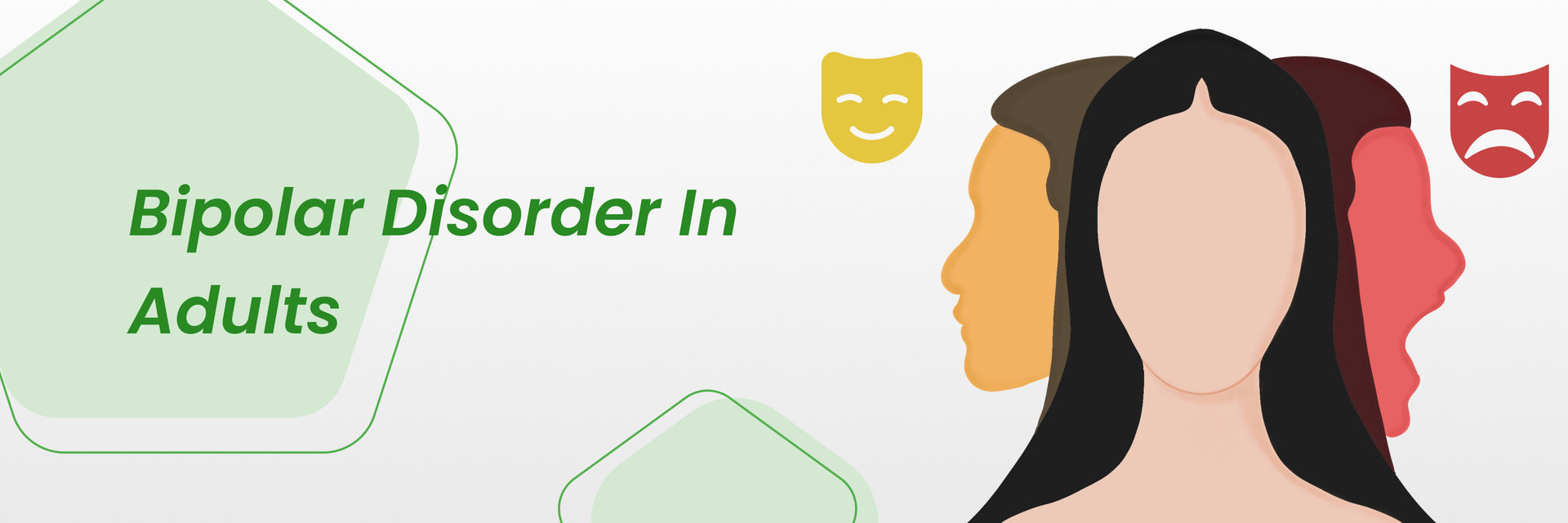What Is a Personality Disorder and How Is It Diagnosed?
Personality disorders caused by childhood trauma are a significant and often overlooked aspect of mental health. Childhood trauma can have profound and lasting effects on an individual's emotional and psychological well-being. They emerge from a combination of genetic, biological, and environmental factors, with childhood trauma playing a significant role. It can disrupt the normal development of their personality, leading to disorders that persist into adulthood. These disorders can manifest in various ways, affecting the individual's ability to form healthy relationships, maintain stable employment, and achieve overall life satisfaction. Understanding the link between childhood trauma and personality disorders is crucial for developing effective interventions and support systems.
Dr. Vikas Patel, a psychiatrist, explains, "Childhood trauma can deeply affect a child's emotional growth. When kids go through trauma, it can change the way their brains handle emotions and reactions. These changes may lead to patterns of behaviour that aren't helpful, which can appear as personality disorders. It’s not guaranteed that every child who faces trauma will develop these issues, but those who do might find it harder to deal with stress as they grow up. Early help can make a difference in preventing these long-term effects."
How Can Childhood Trauma Lead to Personality Disorders?
Childhood trauma can lead to personality disorders through several mechanisms. Trauma can cause changes in brain development, particularly in areas involved in emotion regulation, impulse control, and social interactions. This can result in the development of maladaptive coping mechanisms, such as dissociation, hypervigilance, or aggression, which can become ingrained over time.
The environment also plays a crucial role. Children who experience trauma often lack a supportive and stable environment to help them process and recover from their experiences. Without appropriate support and intervention, the impact of trauma can become more deeply entrenched, leading to long-term psychological issues.
Can childhood experiences reshape the brain? Keep reading further and See how trauma can alter brain development and function.
How Does the Brain Change in Response to Childhood Trauma?
Amygdala: Heightened activity can result in increased fear and anxiety.
Hippocampus: Reduced size and function can affect memory and learning.
Prefrontal Cortex: Impaired development can lead to impulse control and decision-making difficulties.
HPA Axis: Dysregulation can result in abnormal stress hormone levels, contributing to chronic stress and emotional dysregulation.
These changes can make it difficult for individuals to regulate emotions, form healthy relationships, and adapt to stress.
How is Personality Disorder Diagnosed?
Personality disorders are complex mental health conditions often shaped by a combination of genetic, environmental, and psychological factors. Childhood trauma is a significant contributor to the development of these disorders. Here's how doctors diagnose personality disorders stemming from early traumatic experiences:
1. Comprehensive Clinical Evaluation
a. Detailed History Taking: The process begins with thoroughly assessing the individual's personal and family history. Clinicians inquire about early life experiences, particularly traumatic events such as abuse, neglect, or significant losses. Understanding the context and the impact of these events on an individual's development is crucial.
b. Symptom Assessment: Psychiatrists and psychologists evaluate symptoms using standardized tools and structured interviews. They look for behaviour patterns and emotional responses that deviate significantly from cultural norms and persist over time.
2. Use of Diagnostic Criteria
a. DSM-5 or ICD-11: The Diagnostic and Statistical Manual of Mental Disorders (DSM-5) and the International Classification of Diseases (ICD-11) provide specific criteria for diagnosing personality disorders. Clinicians compare the individual's symptoms against these criteria to identify the presence and type of personality disorder.
b. Multiple Axes of Assessment: Personality disorders are often evaluated across multiple dimensions, including emotional regulation, interpersonal relationships, and self-identity. This multidimensional approach helps understand the disorder's pervasive impact.
3. Psychological Testing
a. Standardized Questionnaires: Tools like the Minnesota Multiphasic Personality Inventory (MMPI) or the Personality Assessment Inventory (PAI) help assess personality traits and identify patterns consistent with specific disorders.
b. Projective Tests: The Rorschach Inkblot or Thematic Apperception Test (TAT) may explore underlying emotional conflicts and thought processes.
4. Observation and Behavioral Analysis
a. In-Session Behavior: Clinicians observe how individuals behave and interact during therapy sessions. These observations can reveal significant insights into their personality functioning and maladaptive patterns.
b. Daily Life Functioning: Assessment of how individuals manage daily responsibilities and relationships provides additional context. Significant impairments in social, occupational, or academic functioning are key indicators.
5. Consideration of Comorbid Conditions
a. Co-occurring Mental Health Issues: Personality disorders often co-occur with other mental health conditions, such as depression, anxiety, or substance abuse. Diagnosing these comorbidities is essential for a comprehensive understanding and treatment plan.
b. Differential Diagnosis: Clinicians must distinguish personality disorders from other psychiatric conditions with overlapping symptoms to ensure accurate diagnosis and treatment.
- Longitudinal Assessment
a. Developmental History: Exploring how personality traits and behaviours have evolved from childhood through adulthood helps understand the long-term impact of trauma and the stability of the disorder.
b. Ongoing Monitoring: Personality disorders are chronic conditions. Continuous assessment over time allows clinicians to monitor changes, treatment responses, and the evolution of symptoms.
- Collaboration with Other Professionals
a. Multidisciplinary Approach: Involving professionals like social workers, trauma specialists, and family therapists can provide a holistic view of the individual's situation and support comprehensive care.
b. Family and Social Input: Gathering information from family members or significant others helps one understand the broader context and the impact of an individual's behaviour on their environment.
Types of Personality Disorders
There are several types of personality disorders, categorized into three clusters:
1. Cluster A (Odd or Eccentric Disorders):
Paranoid Personality Disorder
Schizoid Personality Disorder
Schizotypal Personality Disorder
2. Cluster B (Dramatic, Emotional, or Erratic Disorders):
Antisocial Personality Disorder
Borderline Personality Disorder
Histrionic Personality Disorder
Narcissistic Personality Disorder
3. Cluster C (Anxious or Fearful Disorders):
Avoidant Personality Disorder
Dependent Personality Disorder
Obsessive-Compulsive Personality Disorder
Signs That Childhood Trauma Has Led to a Personality Disorder
Identifying the signs that childhood trauma has led to a personality disorder can be challenging, as symptoms can vary widely depending on the type of disorder and the individual's experiences. However, common signs include:
- Persistent difficulty in forming and maintaining relationships
- Extreme sensitivity to criticism or rejection
- Chronic feelings of emptiness or boredom
- Impulsive and risky behaviors
- Difficulty trusting others
- Distorted self-image or identity issues
- Intense and unstable emotions or mood swings
- Persistent fear of abandonment
- Difficulty managing anger or aggression
Which Types of Childhood Trauma Are Most Likely to Cause Personality Disorders?
Physical abuse: Repeated physical harm or threats of harm can instil deep-seated fear and mistrust, contributing to disorders like Borderline Personality Disorder or Antisocial Personality Disorder.
Sexual abuse: This type of trauma can severely impact a child's sense of safety and self-worth, often leading to disorders characterized by intense emotional dysregulation and relational difficulties.
Emotional abuse: Chronic verbal abuse, belittling, or neglect can distort a child's self-perception and lead to pervasive patterns of insecurity and dependency.
Neglect: Lack of emotional or physical care can result in feelings of abandonment and unworthiness, contributing to disorders like Avoidant or Dependent Personality Disorder.
Can Personality Disorders Be Treated When Caused by Childhood Trauma?
Yes, personality disorders can be treated, even when they stem from childhood trauma.
Treatment options include:
- Psychotherapy: Various forms, such as cognitive-behavioural therapy (CBT), dialectical behaviour therapy (DBT), and psychodynamic therapy, can help individuals understand and change maladaptive patterns of thinking and behaviour.
- Medication: While there are no specific medications for personality disorders, medications can help manage symptoms like depression, anxiety, or mood swings.
- Supportive Environments: Creating a stable, supportive environment can help individuals feel safe and understood, facilitating their healing and growth.
- Skill-Building: Learning new coping mechanisms and social skills can improve emotional regulation and interpersonal relationships.
Are genetics and trauma a dangerous combination? Scroll down and uncover how your DNA might influence your response to early trauma.
What Role Does Genetics Play in Personality Disorders Triggered by Childhood Trauma?
Genetics plays a role in the development of personality disorders, including those triggered by childhood trauma. While trauma is a significant factor, genetic predispositions can influence how individuals respond to traumatic experiences. Studies have shown that certain genetic variations can affect brain structure and function, making some individuals more susceptible to developing personality disorders following trauma.
For example, gene variations related to the serotonin system can impact mood regulation and emotional responses. Additionally, genetic factors can influence personality traits, such as impulsivity or aggression, which can interact with traumatic experiences to increase the risk of developing a disorder.
Conclusion
Understanding the link between childhood trauma and personality disorders helps us support and treat affected individuals more effectively. Recognizing early signs and types of trauma that lead to such disorders is key to providing timely help. With advances in therapy and medication, there's hope for those dealing with these complex issues. A comprehensive approach, including genetic and environmental factors, is essential for healing and leading a healthier, more fulfilling life.
FAQs:
Can childhood trauma always cause personality disorders?
Not always. While childhood trauma is a significant risk factor, not all individuals who experience trauma will develop personality disorders.
What is the most effective treatment for personality disorders caused by trauma?
Psychotherapy, particularly dialectical behavior therapy (DBT) and cognitive-behavioral therapy (CBT), is considered highly effective in treating personality disorders caused by trauma.
Are personality disorders permanent?
Personality disorders can be chronic, but with treatment and support, individuals can manage their symptoms and improve their quality of life.
How can I support a loved one with a personality disorder caused by childhood trauma?
Providing a stable, supportive environment, encouraging them to seek professional help, and educating yourself about their condition can be very beneficial.






